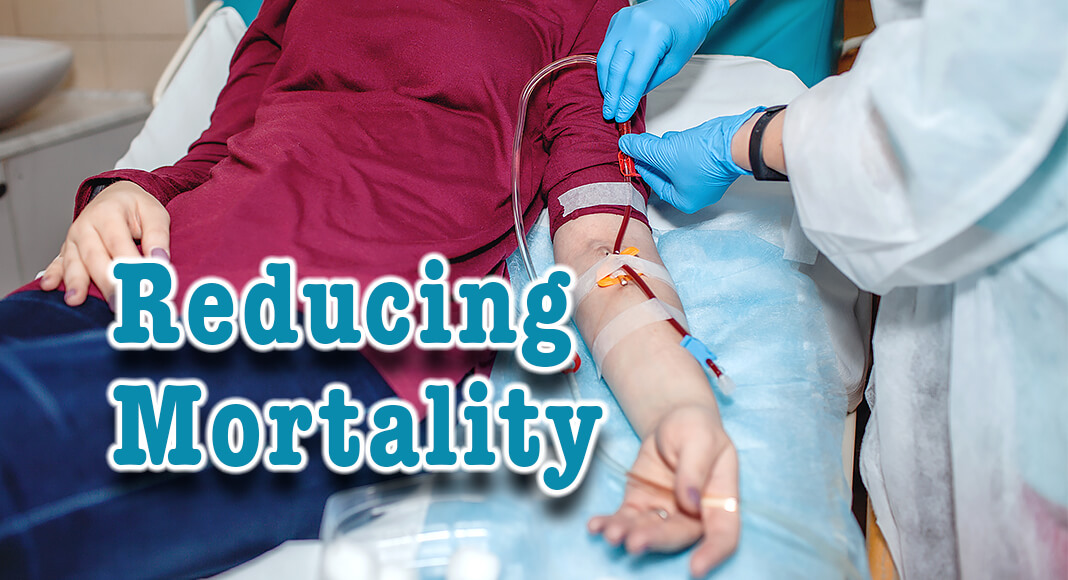
Mega Doctor News
Newswise — Mortality in patients with kidney failure has been found to be 23% lower among those treated with high dose haemodiafiltration compared to those treated with high flux haemodialysis, according to new research from the CONVINCE consortium led by University Medical Center Utrecht.
The study, published today in the New England Journal of Medicine, is the first international, randomized trial to compare the two treatments. The findings indicate that wider use of high dose haemodiafiltration would have clear benefits for patients.
Chronic kidney disease is a leading global health problem that affects an estimated 830 million people globally. When the kidneys can no longer do their job, dialysis is used to clean the blood by removing waste products, a function normally performed by the kidneys themselves. Around four million people are on dialysis worldwide.
Haemodialysis is the most common form of dialysis used in the treatment for kidney failure1. Though it has improved over the years, it is not good at removing larger molecules from the blood. Haemodiafiltration is a newer technology that can remove larger molecules, but it is not suitable for all patients due to the fact that it requires a higher blood flow rate to be effective. Previous studies have failed to conclusively prove that one method is more effective than the other.
The CONVINCE trial has been led by researchers at UMC Utrecht together with collaborators at University College London (UCL), Charité Universitätsmedizin Berlin, University of Bari, The George Institute for Global Health and Imperial College London, along with dialysis providers Fresenius Medical Care, Diaverum and B. Braun Avitum. It is the first multinational, randomized trial to compare high-flux haemodialysis and high-dose haemodiafiltration, with the aim of clarifying which method is superior.
At 61 centres in eight European countries, a total of 1,360 patients were randomised, with 683 treated with high-dose haemodiafiltration and 677 treated with high-flux haemodialysis three times a week.
During a median follow-up of 30 months, all-cause mortality was 21.9% among those treated with high-flux haemodialysis, compared to 17.3% for those treated with high-volume haemodiafiltration. This 4.6% difference represents a 23% reduction in the risk of death.
Lead investigator, Professor Peter Blankestijn (UMC Utrecht), said: “Our results show clear survival benefits for using haemodiafiltration over haemodialysis to treat kidney failure, akin to a 23% reduction in all-cause mortality. My hope is that haemodiafiltration can become the new standard.”
Professor Matthias Rose (Charité University, Berlin), a senior author of the study and expert in patient-reported outcomes, said: “In addition to clinical events, patient perception and thus reported outcomes are very important. We are currently performing in-depth analyses of the extensive data on patient-reported outcomes that have been collected in the CONVINCE study, with results expected later this year.”
While haemodialysis is standard treatment in most countries, haemodiafiltration is less widely used in some places and is not used at all in places like the US. Most modern dialysis machines can perform either method, which would make a switch to haemodiafiltration relatively easy.
Professor Andrew Davenport (UCL Medicine and the Royal Free Hospital), a senior author of the study, said: “During my career I’ve watched new treatments emerge for many diseases, from diabetes to cancer, but we haven’t seen the same advances in the treatment of chronic kidney disease. This study proves that targeting different molecules through haemodiafiltration has clear benefits for patients. I would say that this is the first major step forward in many years and is good news for kidney disease patients and their families.”
The CONVINCE study was exclusively supported by the European Commission Research & Innovation, Horizon 2020, Call H2020-SC1-2016-2017 under the topic SC1-PM-10-2017: Comparing the effectiveness of existing healthcare interventions in the adult population (grant no 754803).









